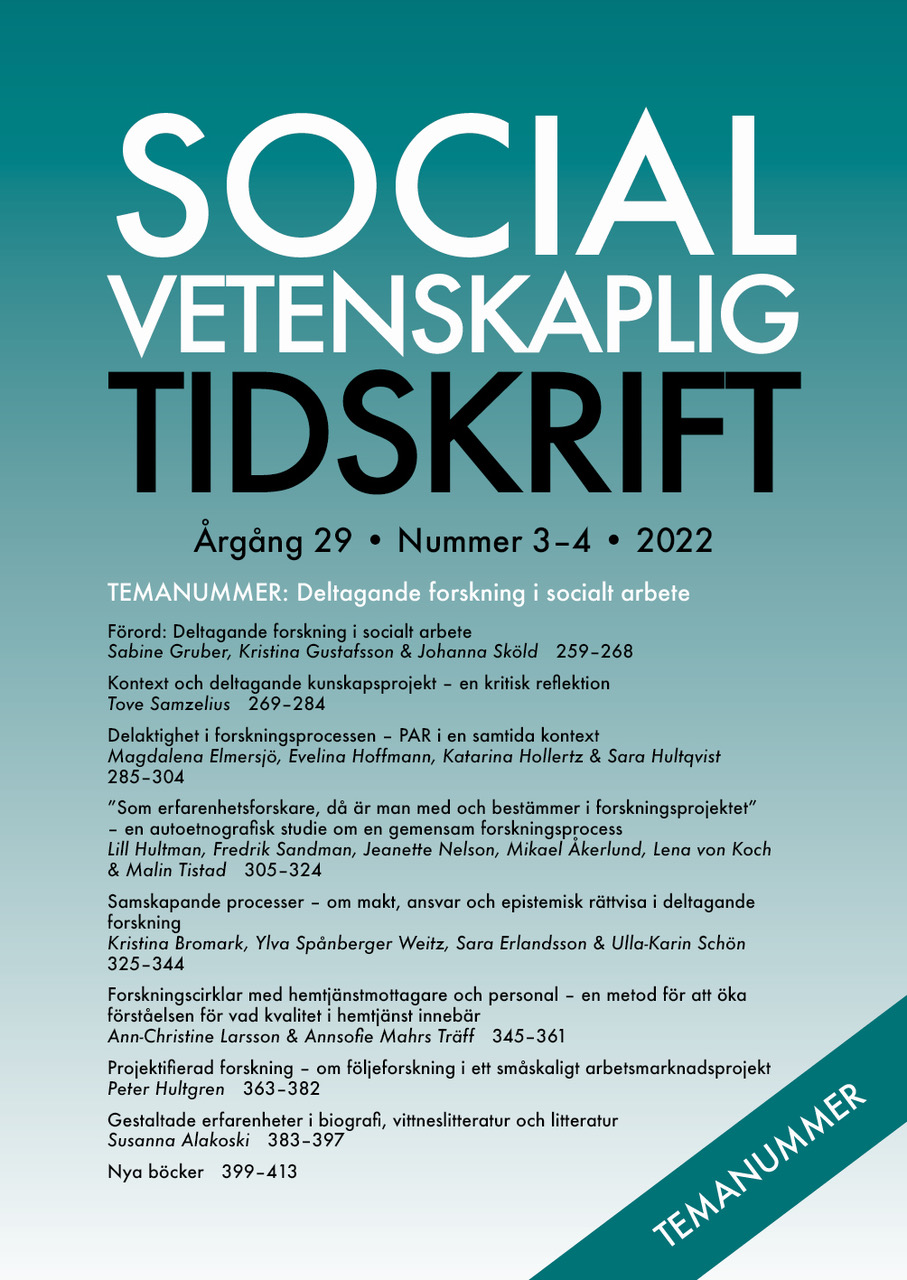Samskapande processer
- om makt, ansvar och epistemisk rättvisa i deltagande forskning
DOI:
https://doi.org/10.3384/SVT.2022.29.3-4.4680Nyckelord:
participatory research, participatory design, co-creative processes, implementation, epistemic injusticeAbstract
Co-creative processes – power, responsibility and epistemic justice in participation research
Participatory research designs are often used to improve the opportunities of marginalized groups to participate in knowledge production. This article is based on experiences from a research project, where participatory design was used to develop and implement user participation for children and young people in out-of-home care. The aim is to discuss opportunities and challenges within different stages of this research project to problematize which participation in participation research involves. Special emphasis is placed on the power relations between researchers, professionals and users through the different stages of the research process – from research design and co-creation to the implementation of co-created knowledge – and to explore how the opportunity maintaining epistemic justice varies among participants throughout this process. This article shows that the conditions for maintaining justice and epistemic justice change when the participatory research process goes from knowledge production to implementation of co-created knowledge. The implementation of knowledge takes place in a context of complex and competing interests, where the responsibility and power of researchers are weakened in favor of the responsibility and power of professionals. At this stage, users' opportunities for power and responsibility is also weakened. This shift of responsibility and power has ethical implications, which users at this stage may feel let down about their expectations of change that were raised in the past stages of the process, are not met in practice.
Downloads
Publicerad
Referera så här
Nummer
Sektion
Licens

Det här verket är licensierat under en Creative Commons Erkännande 4.0 Internationell-licens.
Allt material i Socialvetenskaplig tidskrift publiceras sedan 2022 (Vol 28 Nr 2) med omedelbar öppen tillgång (open access), under Creative Commons-licensen CC BY 4.0. Upphovsrätten till innehållet tillhör respektive författare.
Allt innehåll i tidskriften är fritt tillgängligt utan kostnad och får fritt läsas, laddas ned, kopieras, delas, skrivas ut och länkas. När innehållet används måste författare, källa och licens anges. Författaren kan fritt göra sin publicerade text tillgänglig på institutionella och internetbaserade arkiv, exempelvis sitt lärosätes digitala arkiv eller andra tjänster för detta.
Inga publiceringsavgifter tas ut vid publicering i Socialvetenskaplig tidskrift.


